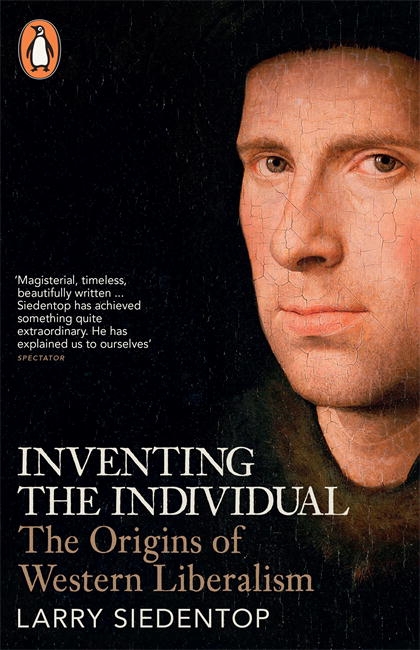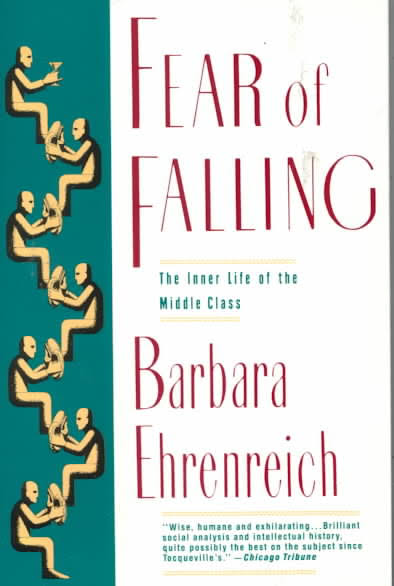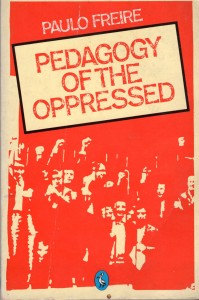Review: Inventing the Individual – The Origins of Western Liberalism
 Cultural assumptions have historical roots. It is incumbent upon anyone who takes part in public debate or social engagement to explore them. In the current moment there is a growing appreciation that when it comes to the self-evident truths of the Western world – things like human rights and democratic values – our roots are firmly and inextricably embedded in our Christian heritage.
Cultural assumptions have historical roots. It is incumbent upon anyone who takes part in public debate or social engagement to explore them. In the current moment there is a growing appreciation that when it comes to the self-evident truths of the Western world – things like human rights and democratic values – our roots are firmly and inextricably embedded in our Christian heritage.
This conclusion is not simply the stuff of political rhetoric of the Christian Concern variety, nor even of decent apologetics like that of CPX or the recently released Jesus the Gamer Changer series. It’s the stuff of thorough historiography. Larry Siedentop, formerly professor of Intellectual History at Sussex University, and fellow of Keble College, Oxford, and Lecturer in Political Thought, gives us this stimulating monograph.
Like any careful teacher, Siedentop précises himself throughout. His epilogue, “Christianity and Secularism” contains a summary of the basic building block of his argument:
More than anything else, I think, Christianity changed the ground of human identity. It was able to do that because of the way it combined Jewish monotheism with an abstract universalism that had roots in later Greek philosophy. By emphasizing the moral equality of humans, quite apart from any social roles they might occupy, Christianity changed ‘the name of the game’. Social rules became secondary. They followed and, in a crucial sense, had to be understood as subordinate to a God-given human identity, something all humans share equally… In one sense Paul’s conception of the Christ introduces the individual, by giving conscience a universal dimension… Through its emphasis on human equality the New Testament stands out against the primary thrust of the ancient world, with its dominant assumption of ‘natural’ inequality. (pp352-3)
Siedentop is not, nor does he read like, a New Testament exegete or biblical theologian; he’s a political philosopher. But his grappling with biblical texts is robust and fair and his understanding of early and middle Christian history is useful as a history text in its own right.
His last chapter, “Dispensing with the Renaissance” reveals his programme. The fundamental tenets of Western liberalism (moral equality and “natural rights” of individuals, representative government and institutions, and freedom of enquiry) were not novel discoveries of the modern age.
…I am not suggesting that the Renaissance did not matter, that it did not channel human thought, feeling and expression into new forms… But what I am maintaining is that as an historiographical concept the Renaissance has been grossly inflated. It has been used to create a gap between early modern Europe and the preceding centuries – to introduce a discontinuity which is misleading. (p337)
His preceding chapters justify a continuity. Upon the Pauline building block of the salvation of “individual souls”, which counters the priority of aristocratic or familial obligations, he notes the “demolition of ancient rationalism” that was eventually completed by Augustine (p104). Early monasticism avoids compromise with the “aristocratic world” (p93) and implements an “utterly new form of social organisation” based on “voluntary association, in individual acts of will” (p94). By the time Charlemagne attempts to reprise a Roman-like imperial rule, the “individual began to emerge as the unit of subjection, a social role as well as a moral status” (p154).
It is intriguing to see how the role of the church in the post-Carolingian feudal period prevents a recourse to an aristocratic illiberal world. Concepts that might now be caricatured as theocratic overreach were actually forms of emancipation. The church’s insistence of marriage as a sacrament undoes the last vestiges of absolute slavery (p171) by preventing men and women being bartered and bred. The sense of “divine right” of kings is actually a great leveller (p174); the king is not king by some ontological natural attribute, but by divine providence, and is therefore obligated to God as much as any other individual.
It’s a flip-side consideration that has contemporary impact. I am reminded of a conversation I had with a thoughtful person who was well versed in anti-discrimination law. In conversation about how I would approach a certain subject I began with the words, “Well, we’re all sinners.” To her look of dismay at such an unfortunate premise, I noted that that this understanding is fundamentally egalitarian: No one can claim moral authority in and of themselves, we are all sinners. The crescendo of self-righteousness on all sides of contemporary debates indicates the value of humility that a mutual recognition of the divine could bring.
Siedentop’s consideration takes us through the Cluniac reforms, in which the “purity” of monastic houses, and the freedoms of their volitional, individual members, were reinforced against local, feudal pressures. He demonstrates how the developing sense of papal sovereignty extended the moral sense of the “individual” such that it became a primary social role “shared equally by all persons” (p219). This inherently “bottom-up” conception shaped the development of canon law, as it grew to support the centralised papacy, bringing a form of universality of rights and obligations. Civil structures were only later to catch up and, in so doing, moved the social framework away from realms towards nation-states with an embryonic social contract. And finally, the philosophical pieces of liberalism are fully in place as the Franciscan movement, countering the scholastic infatuation with Aristotelian rationalism, emphasised divine freedom (free from the constraint of a more fundamental essence or ideal) and a consequent human agency.
And all of this before the Renaissance!
It is only in the tumult of the Reformation, as the enforcement of belief becomes a prevalent political and social reality, that Siedentop sees the liberal ideas becoming manifest as an anti-clericalism, sowing the seeds that germinate and grow throughout the modern period and even bear fruit today.
Sidentop’s history-telling is compelling and convincing. All would do well to ingest it, certainly before rejecting fait accompli the Christian world view as inherently repressive and totalitarian.
But the bigger question this raises for me is something of a “so what?” There are two aspects to this:
Firstly, to the extent that liberalism is virtuous, how much does the current irreligious age put our liberalism at risk? Christian origins might be apparent, but not conceptually necessary for many thoughtful liberals. What do we lose if we lose the understanding of origins? What difference does it make?
I suspect the difference at this point is not sociological but epistemological, and we must perhaps consider different instantiations of liberalism in the contemporary setting. You can have multiple points of view that share Siedentop’s liberal characteristics, but which vary greatly in application. The current differences on gender and sexuality are the prime example. For some, (ironically both traditional conservative and classical feminist), individual freedom is found in embracing and defending the biological aspects of human being as an essential part of identity. For others, individual freedom is to transcend or reject not just social constructions but the biological realities to which they attach. Both are “liberal” in their own internal sense, but are also at odds. From either point of view, the other constrains individual freedom.
I can therefore understand the argument by which the rejection of the Christian epistemological ground is seen as a path toward an illiberal “liberalism.” This is evident in current popular rhetoric (the “intolerance of tolerance,” “slippery slope” etc).
Secondly, to the extent that liberalism is not the gospel, what correctives are needed? We do well to focus on individualism, and recognise its primordial rejection of familial aristocracy. But where do concepts such as community and family and plurality enter in? There is power in introspection, but the gospel is more than just alleviating the anxiety of the introspective conscience, it is about the commencement and completion of a “chosen people, a royal priesthood, a holy nation” in which there is an interdependence of persons.
The postmodern reprise of both relationship and experience is a necessary corrective within the grand flow of philosophical history, and one that the Christian worldview is yet to adequately inform or harness. Any attempt needs a view of history that would learn a great deal from Siedentop.





